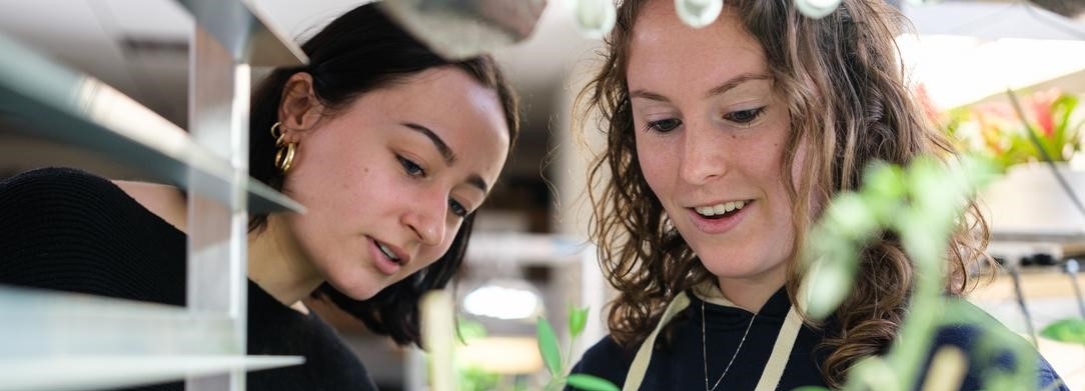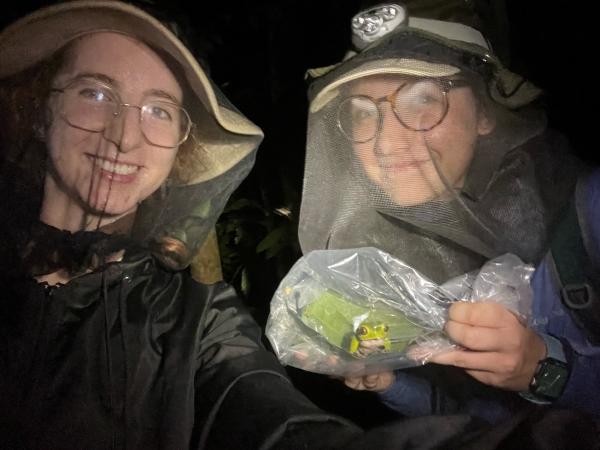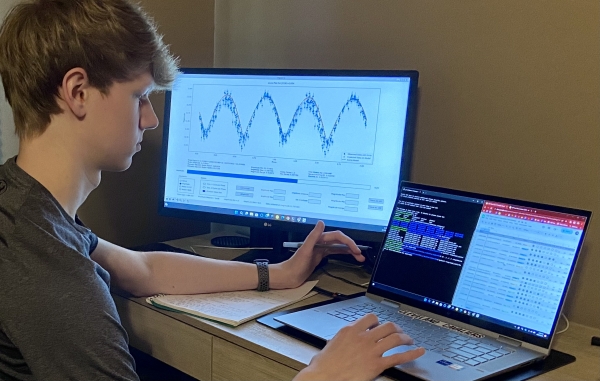Colleran-Weaver Research Fellowships provide funding opportunities for undergraduate students from all disciplines to participate in independent research and creative projects in collaboration with faculty in the College of Arts and Sciences.
John Carroll alumni Jeanne Colleran ('76), a Professor Emeritus of English and former Provost and College of Arts & Sciences Dean at JCU, and Richard Weaver, Esq. ('77) established this fund to provide experiential learning opportunities for students of their alma mater.
Eligibility:
- Summer fellowships are open to rising juniors & seniors and occasionally to other students under special circumstances.
- The student must work with a CAS faculty mentor. Mentors must be full-time faculty. Students must have the mentor’s approval before submitting an application.
Type 1: Summer Undergraduate Research Fellowship (SURF)
- Full-time, 10-week commitment
- Students work with faculty on research projects and participate in group activities.
- Students are required to present their research at Day of Innovation Scholarship and Creative Expression in Research (DISCOVER).
- Salary adjusted to current pay rate for students.
- Funds cannot be used for thesis, capstone, or other required courses.
- Deadlines: applications are due the Friday of the first full week of February.
- Selection Process: The Associate Dean for STEM will convene the department chairs and faculty with student applicants to review the applications and decide the awardees. If multiple students select the same mentor, that mentor needs to be consulted as to her/his preference. Only one student per mentor will receive support (except in the case of group projects). Preference will be given to students and mentors who have not received support in the previous year.
- Students will be notified the first week of March if they have either received the award, are on a waiting list, or are not accepted for that summer. The waiting list should be cleared by the last week of March.
Two SURF fellowships are specially designated funds for the Coburn Chair and Physics. Part of those funds can be allocated for student travel to present at a conference or, in the Coburn case, to collect data.
Type 2: Research projects during the semester
- Students work a variable number of hours up to a maximum of 10 hours per week.
- Students work with faculty on research projects.
- Students are required to present their research at Day of Innovation Scholarship and Creative Expression in Research (DISCOVER).
- Salary adjusted to current pay rate for students.
- Funds cannot be used for thesis, capstone, or other required courses.
- Deadlines: applications are due May 1 (priority deadline) or the second Friday in September for Fall projects, or November 1 (priority deadline) or the second Friday in January for Spring projects.
- Selection Process: The Associate Dean for Sciences will convene the chairs of the departments with student applicants to review the applications and decide the winners. If multiple students select the same mentor, that mentor needs to be consulted as to her/his preference. Only one student per mentor will receive support (except in the case of group projects). Preference will be given to students and mentors who have not received support in the previous year.
- Students will be notified by the last week of September for Fall projects and the last week of January for Spring projects.
Travel Subsidy: only applies to travel to a conference to present research performed as a result of type 1 or 2 projects.
- Travel subsidies will be capped at $400.
- Students must attempt to find alternative sources of funding.
- Students must complete a separate application for these funds.
- Travel applications are due two months previous to the scheduled travel time. Students must submit an application form to be eligible.
- Biology students have conducted fieldwork in Costa Rica and Chilé during the summer.
- Chemistry students have investigated proteins, DNA, cellular damage from oxidants, and the creation of new molecules.
- Computer Science students have partnered with Cleveland Clinic radiologists to develop software that allows doctors to read X-rays remotely.
- English and History students have published articles in prestigious academic journals and literary magazines.
- Neuroscience students have won first place for research papers in 24 out of the last 25 years at the Eastern Colleges Science Conference.
- Physics and Engineering Physics students do research with JCU faculty in the summer leading to presentations at regional and national conferences, and co-authorship on journal publications.
- Psychology students have presented research findings at conferences such as the Midwestern Psychological Association’s Meeting in Chicago and the Ohio Undergraduate Psychology Research Conference.
- Sociology students participate in a poverty and solidarity program in the Cleveland area.
Each spring, the John Carroll community gathers for the Day of Innovation Scholarship and Creative Expression in Research (DISCOVER) to recognize the outstanding student and faculty research that takes place throughout the year.
Funding for student research is available in many academic departments in the College of Arts & Sciences - explore different fields to find more!

Student Research
Learn more about the JCU students who have conducted research in the classroom and in the field during their time on campus.
Carly Anderson ’24 and Molly Russell ’24 traveled to Colombia and worked with Dr. James Watling, Catalina Valderrama (M.S. ’24), and Colombian colleagues to collect data on the abundance of microhabitats across a landscape disturbance gradient in the Middle Magdalena River Valley. Here, they set up and studied dozens of 50m transects, collecting information on the availability and thermal composition of typical microhabitats, focusing on tree canopy density, understory density, standing water, water-holding vegetation, and burrows. Sampling locations took place in highly disturbed agricultural pastures, regenerating forests, and relatively untouched, dense rainforest landscapes to cover the altered terrain resulting from deforestation, human activity, and restoration in rural Colombia. Preliminary statistical tests generally demonstrated fewer microhabitats available in more disturbed areas, suggesting that such a landscape provides less of an ability to buffer heat for species occupying that niche.

Jacob Juvan '25 worked with Dr. Bob Kehoe (Southern Methodist University) and fellow students to identify, classify, and characterize variable star systems. He developed a program to manually adjust the periods of variable star light curves, which show the brightness of an object over time, as well as calculate the chi-square value of the observations against sinusoidal and parabolic functions. Jacob also began working specifically on binary systems, which are two or more stars that orbit each other. Information such as effective temperature ratio and oblateness can be extracted from these systems due to their gravitational interaction. Jacob was able to obtain preliminary results for a few binary systems using various different programs that analyzed their light curves.
